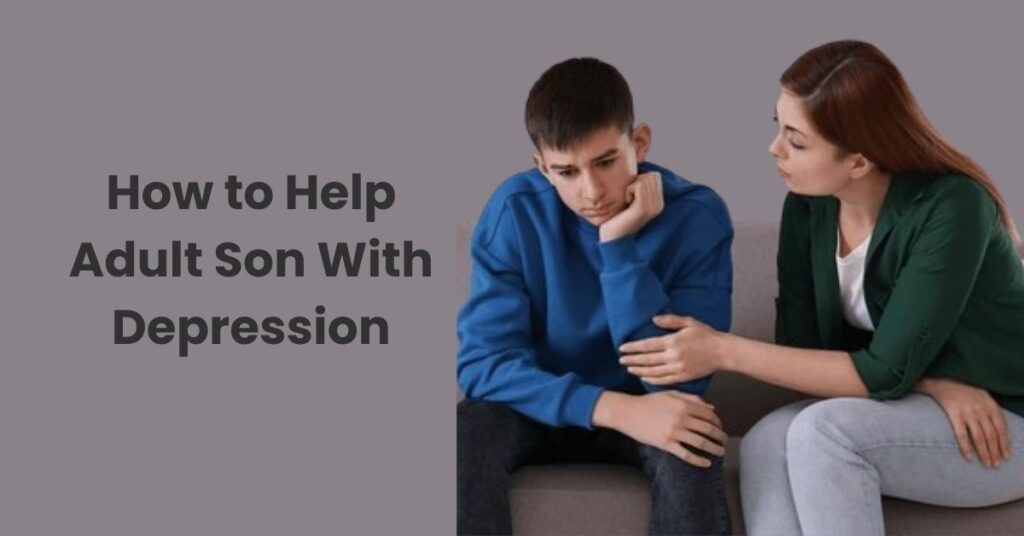Depression is a serious mental illness. It can affect anyone, including your adult son. As a parent, you want to help. But sometimes, you may not know how. This guide will help you understand what to do.
Topic of Contents
ToggleUnderstanding Depression
First, it’s important to understand depression. Depression is not just sadness. It is a medical condition. It affects the brain and body. It can cause feelings of hopelessness. It can make daily tasks difficult.
Signs Of Depression
Look for these signs:
- Persistent sadness
- Loss of interest in activities
- Changes in sleep patterns
- Changes in appetite
- Fatigue and low energy
- Difficulty concentrating
- Feelings of guilt or worthlessness
- Thoughts of death or suicide
If your son shows these signs, he may have depression. But only a doctor can diagnose it.
How to Talk to Your Son
Talking to your son about depression can be hard. Here are some tips:
Be Supportive
Let your son know you care. Tell him you are there for him. Listen to him without judging.
Choose The Right Time
Pick a quiet time to talk. Avoid busy or stressful moments. Make sure he feels safe and comfortable.
Use Simple Language
Keep your words simple. Be clear and direct. Avoid using complex medical terms.
Be Patient
Your son may not want to talk right away. Give him time. Let him know you are always there to listen.
Encouraging Professional Help
Professional help is important. A doctor or therapist can provide treatment. Here’s how to encourage your son to seek help:
Normalize Seeking Help
Explain that seeing a doctor is normal. Just like seeing a doctor for a physical illness.
Offer To Help Find A Doctor
Help your son find a doctor or therapist. Offer to make appointments. Go with him if he wants.
Provide Information
Give your son information about depression. Share articles or books. This can help him understand his condition.
Be Encouraging
Encourage your son to stick with treatment. Remind him that it takes time to feel better.
Creating a Supportive Environment
Creating a supportive home environment is key. Here are some ways to help:
Encourage Healthy Habits
Encourage your son to eat healthy foods. Suggest regular exercise. Ensure he gets enough sleep.
Reduce Stress
Help reduce stress at home. Keep the environment calm and peaceful. Avoid unnecessary conflicts.
Stay Connected
Spend time with your son. Engage in activities he enjoys. This can help him feel less isolated.
Respect His Privacy
Respect your son’s privacy. Give him space when he needs it. But also let him know you are there for him.
Taking Care of Yourself
Helping your son can be stressful. It’s important to take care of yourself too. Here are some tips:
Seek Support
Talk to friends or family. Join a support group. Sharing your feelings can help.
Take Breaks
Take time for yourself. Do things you enjoy. This can reduce your stress.
Stay Healthy
Eat well, exercise, and get enough sleep. Taking care of your health is important.
Consider Professional Help
If you feel overwhelmed, consider seeing a therapist. They can help you cope with your stress.
Frequently Asked Questions
What Are The Signs Of Depression In Adults?
Changes in sleep, appetite, and mood. Lack of interest in activities. Persistent sadness.
How Can I Support My Son With Depression?
Be patient and listen. Encourage professional help. Offer support without judgment.
Should I Talk To My Son About His Depression?
Yes, gently and with care. Show understanding and offer help. Avoid blame.
Can Lifestyle Changes Help With Depression?
Yes, exercise, healthy diet, and regular sleep improve mood. Encourage these habits.
Conclusion
Helping your adult son with depression can be challenging. But with love and support, you can make a difference. Remember to be patient and understanding. Encourage professional help. Create a supportive environment. And don’t forget to take care of yourself too.
Resources
Here are some resources that can help:







